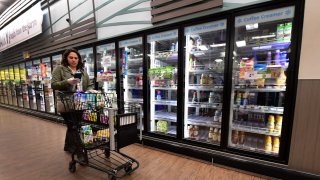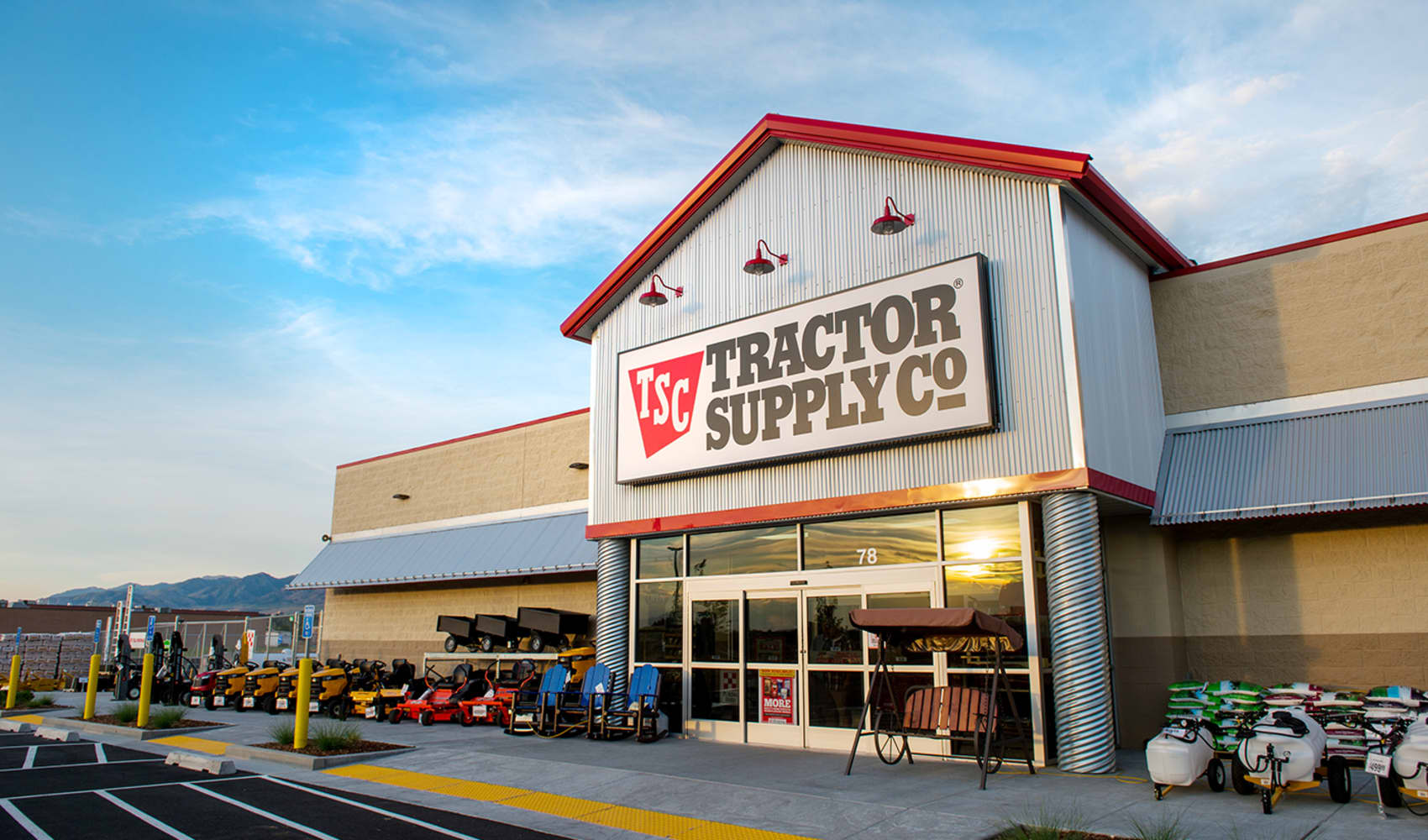
Millions of Americans are staying home to minimize the spread of COVID-19. As a result, gig workers have become a crucial lifeline delivering food and other supplies to people living in self-isolation.
But while there's a surge in demand for some services, like take-out and grocery delivery, others, like ride-sharing, are seeing a dramatic drop. And there are very few protections for these independent contractors who are risking their health in order to earn a paycheck.
Many companies — including Lyft, Uber, DoorDash, Postmates and Instacart — have announced emergency assistance policies for independent contractors. Efforts include providing hand sanitizer and cleaning supplies at no cost, instituting contact-less delivery, establishing relief funds for impacted workers and providing two weeks of partial pay to workers who are diagnosed with coronavirus or are put under quarantine by a public health authority.
However, some worry these measures protect only workers who become sick and don't do enough to help those facing reduced hours and wages. Others feel they're being incentivized to continue working until they become sick.
Here's what four gig workers around the U.S. are seeing, and how the country's response to the pandemic could change the future of the gig economy.
Get Philly local news, weather forecasts, sports and entertainment stories to your inbox. Sign up for NBC Philadelphia newsletters.
As ride-share numbers plummet, drivers have few places to turn
American spending on ride-sharing services like Uber and Lyft has dropped notably in recent weeks.
The Wall Street Journal reports consumers spent 21% less on Uber rides and 19% less on Lyft rides in the week ending March 16, compared with the previous week. Through January and February, prior to coronavirus spreading throughout the U.S., average week-over-week spending for Uber and Lyft rides rose 3% and 4%, respectively, the Journal reports.
Money Report
Grant O'Donnell of Jersey City, New Jersey, started driving for Lyft in late 2019 to supplement his income as a temporary warehouse stocker. The 23-year-old noticed an increase in ride requests in early March as coronavirus precaution swept the nation. Most of his riders wanted to avoid public transportation and needed to get to stores to stock up on food and cleaning supplies, he says.
"Almost everyone wanted to talk about coronavirus as soon as they got in the car," O'Donnell says. As the days wore on, those discussions became more panicked. Riders often discussed not being able to find items such as hand sanitizer and disinfectant wipes.
Ridership demand has changed dramatically since then.
O'Donnell says he used to average 50 rides per week but now has so few requests that he doesn't attempt to pick up gigs. Last week, Lyft deactivated his driver account, and O'Donnell hasn't been able to get in touch with driver support to confirm why.
According to the company, failure to abide by Lyft's Terms of Service or other policies can result in temporary or permanent deactivation from the Lyft platform.
While ridership is down, Lyft is shifting gears by partnering with local organizations for delivery services. Drivers will be able to deliver medical supplies to health centers, bring meals to kids and seniors and provide rides for those in low-income communities to get to medical appointments.
In the meantime, O'Donnell says he's considering picking up more gig work delivering food with UberEats and Postmates. Otherwise, his temporary warehousing job remains steady. Many companies, such as Amazon, have been hiring more warehousing associates in recent weeks to meet rising demand in online shopping orders.
Vivek Shah, 30, has fewer options following his drop in Uber rides in Los Angeles. Shah relies on gig work for his entire income and has seen a roughly 60% drop in his earnings.
By mid-March, "I was out and waited for about an hour before I caught a ride, which was just about $2 and change to go a few blocks," Shah says. "I waited another hour and caught another ride for a similar amount.
"So in three hours, I earned roughly $6," he says. "That's when it hit me: There's simply no demand."
Shah has picked up a few other gigs delivering groceries with Postmates, but it hasn't been enough to make up for his lost driving income. He worries Uber's policy will lead drivers to continue working until they become sick in order to receive financial assistance.
In a letter to Congress this week, Uber CEO Dara Khosrowshahi urged lawmakers to include all independent contractors, including Uber's drivers and delivery people, in any stimulus packages enacted in response to the coronavirus.
Shah has filed for unemployment insurance in California but is unsure whether he'll qualify given ongoing challenges to California's Assembly Bill 5, known as AB5, that would have required independent contractors, including many gig workers, be reclassified as employees as of January 1, 2020.
Shah says he's supposed to be notified of his unemployment eligibility within 10 days of filing. "Even if I do see a check, it will be several more weeks down the road [until I receive it]. It'll be too late for me to take care of myself."
He says he's paid the rent on his L.A. residence through the end of March and plans to move home with family in Chicago by April 1.
"I simply won't be able to meet my day-to-day living expenses here in California," Shah says. "I don't have any other recourse."
Empty grocery shelves lead workers to deliver more take-out orders
Laurice Wardini, 22, earns her entire income as an Instacart shopper and Postmates delivery driver in L.A.
"A lot of people think that the coronavirus would be affecting these gig jobs positively because more people want to order groceries and food delivery to avoid leaving their homes," she says. "But this isn't the case in my area."
Supply is a major issue as waves of shoppers leave store shelves empty. A few weeks ago, Wardini had trouble filling orders for non-perishable foods such as beans, canned vegetables, pasta and rice. Now, she says, she often finds nearly everything is sold out.
"I've accepted multiple orders only to get to the store, tell the customer the majority of their order is out of stock, and then have them just cancel their order," Wardini says. Canceled orders must be called into Instacart's shopper customer service line in order for the shopper to receive payment for it; however, "with the pandemic craziness, it takes so long to reach someone that I don't bother wasting more of my time," Wardini says.
In addition to financial assistance to workers who become sick or quarantined, the pandemic has prompted Instacart to introduce a new permanent sick pay policy for all in-store shoppers; previously, only some states required companies to allow workers to accrue paid sick days. Shoppers can earn one hour of sick pay for every 30 hours worked, up to a maximum of 40 hours per year.
Wardini has been able to make up for lost Instacart orders by focusing more on her Postmates deliveries. Many states have banned dining in at restaurants, prompting eateries and bars that serve food to ramp up their delivery and to-go options.
She used to spend about 20 hours per week delivering for Postmates, Wardini says, but has since increased her focus there. "I log on very often just in case an order comes through that I can snatch," she says.
Time is of the essence — Wardini has seen an uptick in fellow gig workers on these delivery platforms, making competition for orders more stiff. It's likely other gig workers who've had less traffic from other platforms are turning to delivery services for work. And people who've recently lost their jobs or had their working hours reduced due to the pandemic are turning to gig work for income.
Nationwide closures have moved some people to take up gig work for the first time. Brett Dale is a 21-year-old Western Carolina University student who recently moved back home to Marion, North Carolina, after the university shut down on campus and moved to online classes only. He started delivering for DoorDash on March 15 and focuses on picking up orders around dinnertime.
It's an opportunity to earn extra money while home, Dale says, but he acknowledges that delivering orders comes with risks.
"If I'm going to do food delivery, I need to take precautions," Dale says. "I have a box of single-use gloves that I discard between every delivery, and hand sanitizer in my car."
Of his efforts to avoid infection and minimize the virus spread: "I'm trying to do my part."
How coronavirus could impact the future of the gig economy
The way a company handles their gig workforce during the pandemic could have a major impact on the future of the gig economy at large, says Lindsey Cameron, professor of management at the Wharton School of the University of Pennsylvania.
Pressure from workers, advocacy groups and lawmakers have led some companies to roll out emergency policies to protect gig workers, who are generally classified as independent contractors and do not receive sick pay or health benefits.
Many say these measures still aren't enough.
Cameron says a lack of company response could galvanize more public support for state and local measures to protect gig workers. She suggests, following the pandemic, consumers may be more likely to push for greater action — from company CEOs or local lawmakers — to protect gig workers' income and provide paid leave and benefits, such as health insurance.
"I see this as a time when both sides, gig workers and platforms, are able to build public goodwill," Cameron says. "So many folks are scared to leave their homes, and people in delivery services are taking on extra risks. Consumers are even more so becoming their allies."
There's reason to believe the surge in demand for these types of workers — especially in manufacturing, transportation and shipping — is here to stay for the foreseeable future.
According to online job marketplace ZipRecruiter, openings for transportation and storage jobs posted to the site increased by 36% between the first and second weeks of the month. Food delivery positions alone jumped by 78%.
As a result of more people shopping online for home delivery, "We're seeing companies like Amazon, Grubhub, UberEats and DoorDash report a dramatic increase in demand and need to bring on additional capacity of workers," says ZipRecruiter labor economist Julia Pollak.
Last week, Amazon announced intentions to hire 100,000 workers across their warehousing and delivery units in response to the surge in online shopping demands.
"We're going to see a massive surge in that workforce in the coming months," Pollak says.
She also suggests the pandemic may play a lasting role in the demand for this type of work much further down the line.
"Just as 9/11 changed the way people thought of the safety of flights forever, people may feel differently about congregating in large numbers for a long time," Pollak says. "This online delivery economy will see a temporary bump, and that'll come a bit down after life returns to normal, but it will always be at much higher level than before."
Check out: The best credit cards of 2021 could earn you over $1,000 in 5 years
Don't miss: How states are expanding unemployment eligibility to include more people impacted by coronavirus






